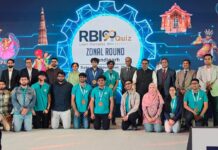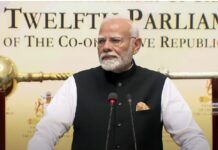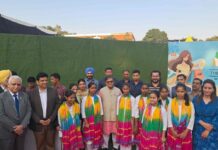World NCD Federation advocates reducing cancer care gap in India
Cancer is the second-leading cause of death worldwide and about 10 million people die from cancer every year. According to projections by experts cancer deaths will to rise to 13 million by 2030. World Cancer Day is celebrated every year on 4th of February and is marked to raise awareness of cancer and to encourage its prevention, detection and treatment. Theme of World Cancer Day for the year 2022-2024 is “Close the Care Gap” and it recognizes the power of knowledge and challenges assumptions . The Year 2022 marks the first year of a new three-year campaign centered on the issue of equity. This first year of the campaign is about realizing and recognizing the inequities in cancer care around the globe. It also explains the barriers that exist for many people in accessing services and receiving the care they need. Inequity in cancer care costs lives.
In Indian context, there are various structural, geographic, economic, cultural, and political factors affect the extent to which India can provide affordable cancer care. The country spends INR<600 per person on cancer care which is very low as compared to high income countries spending INR>75000 per person. Very low insurance coverage and high out of pocket expenditure pushes patients and their families into catastrophic poverty following a diagnosis of cancer.
According to report of Population Based Cancer Registries in Chandigarh and Punjab, which are being run as a joint collaboration of PGIMER, Chandigarh and TMC, Mumbai with cooperation from Department of Health and Family Welfare, Punjab and Health Department, UT Chandigarh, the age adjusted incidence rates(AAR) in Chandigarh for males and female are 96.6 and100.9 per 100,000 population respectively. These rates are higher than the national average which is 89.8 per 100,000 for males and 90 per 100,000 for females. The AARs for SAS Nagar are 87.3 and 96.2 for males and females respectively. Sangrur and Mansa cancer registry incidence rates are lower than the urban cancer registries; however, it is in comparison with other rural registries of the country. The main leading cancer incidence sites in are Lung and Prostate in males whereas it is Oesophagus and liver in Sangrur and Mansa PBCR. However, in females Breast and Cervix are the top leading cancer sites in all the four PBCRs.
In India, more than one third of cancer cases are preventable, but there is little focus on prevention. The screening rates for common cancers are very low. In Punjab, only 4% and 2% of women aged 30–49 were ever screened for cervical and breast cancer respectively, whereas only 7.9% population was ever screened for oral cancer. Similarly in Haryana, only 7.7% and 8% of females aged 30–49 were ever screened for cervical or breast cancer and 14.7% of the eligible population was ever screened for oral cancer. There is need to strengthen the population based cancer screening under NPCDCS program. Prof. JS Thakur, Principal Investigator for PBCR Chandigarh and Punjab emphasized the need of reducing the treatment gap and improved access to diagnostic and treatment facilities, especially in the rural areas.
Cancer is needed to be seen and addressed as a public health priority. Improvements in outcomes will come through screening & early detection, primary prevention of common risk factors eg tobacco, alcohol, unhealthy diet and physical inactivity and a greater emphasis on the social determinants of cancer. Cancer awareness program needs to be emphasized.Also strengthening of the diagnostic and treatment facilities in the region along with enhancement of capacity and increased clinical and allied health-care manpower is essential. There is need to provide new social and economic support mechanisms and schemes especially for those who are poor or living in rural areas and bear costs from out-of-pocket expenditure for cancer treatment. Implementation of region-specific cancer prevention and control plans that address each regions’ unique needs and resources is required.
Dr. Harmanjeet Kaur
Prof. JS Thakur
World NCD Federation
















